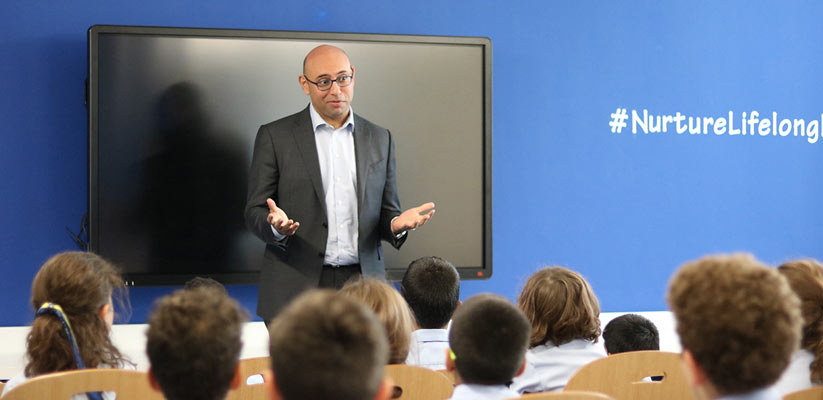The Lost Art Of Listening
Have you ever tried to listen to every single word of a song? How far did you get? My prediction is that you wouldn’t get very far at all. Why? Because your concentration levels are battling with so many distractions that trying to listen to every word of a song is extremely hard. If you have never done it before, try it. The next time you are in a car, turn on the radio and listen to a song and try and listen to every single word. Line 1 will pass with ease. Line 2 with satisfaction. By the time you hit Line 6 or 7, the vast majority of you will find your mind wandering to distractions in or outside of the car or distractions in your head. Why? Because listening is hard.
Research on listening indicates that we spend 80% of our waking hours communicating: 9% writing, 16% reading, 30% speaking and 45% of our day engaged in listening. Listening can take many forms: conversations, music, TV and radio, to name a few. When you stop and think about it, these statistics are not terribly surprising. What is surprising though is how actively engaged we are when we are listening. The prediction is as little as 25%. We become pre-occupied. We do not pay attention. We are not listening. Why? Because listening is hard.
One of the factors influencing this statistic is that the average attention span for an adult in the United States is 22 seconds. It is not surprising that the length of television commercials is usually anywhere from 15-30 seconds. Following this, most adults will then remember only about 50% of what has been said. A few hours later, we will only remember 10-20% of what has been said. Why? Because listening is hard.
I find all of these statistics very disappointing, but could they be improved? Of course, they can. You could argue that the reason these statistics are this way is that people are not speaking, presenting or producing content that is engaging enough to keep someone listening. I am sure this is the case in many situations. However, this is pointing the finger solely at the speaker rather than the listener.
Nowadays, you will rarely go through any interview process without the employer testing your ability to communicate and often the preferred testing method is seeing if someone can present. Whether you are at School, University or in employment, presenting is something your teachers, lecturers or bosses are always keen for you to improve on. It is seen as the top communication skill to have, even though 45% of our time communicating is spent listening. However, less than 5% of us have ever concentrated on developing our listening skills. Why? Firstly, because people view listening as such as a basic skill that we take it for granted. Secondly, people are reluctant to admit to themselves that they are not great listeners, even though the majority of us fall into this segment.
Why is it so important? The art of listening is critical to building successful relationships. These relationships can be formed in the home, with friends, at school or at work. If someone is talking, it is usually because they want to be listened to. If the statistics above are accurate, we spend 36% of our waking day listening, but only 25% of this time listening properly. I predict the split between when you are listening properly versus when you are not listening properly is parallel to those you do have a good relationship with versus those that you do not have a good relationship with.
Now imagine if you flipped that on its head and you were listening properly 75% of the time. What would be the effects? Simple: 1) You would hugely improve relationships for sure (inside and outside of school) 2) You would learn a huge amount more 3) You would be so much more aware of your surroundings.
Could you listen better? The answer is a big YES but you need to find ways of working on it. I am trying to improve this very quality myself. My tip is to do two things: 1) Ask yourself, ‘Who is the best listener I know’? ‘What can I learn from them?’ -2) When you know you are not listening, remember this blog and actively engage yourself back in the conversation/presentation you are meant to be engaged in. If you keep doing that, you will begin to get into better and better habits as time goes by.
I have learned a huge amount on my journey of becoming an entrepreneur. When I engage with other entrepreneurs now on a daily basis, the biggest thing which has become apparent to me is that successful entrepreneurs are the best listeners. They are always listening, watching, learning from others, as they seek to improve themselves.
I am not expecting everyone to be engaged 100% of the time, but I really believe if you concentrate on improving your listening skills and improve as little as 10%, you will see a massive effect on your life. As I am often reminded, we were born with one mouth and two ears for a reason. Use them to listen and start practising in your lessons or at work today, students of Arcadia and everyone else who is reading this blog!

